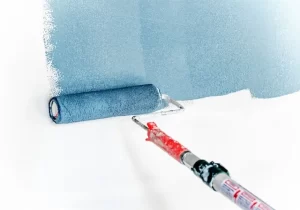Air purifiers are a must-have in many homes and businesses today, with air pollution and allergies becoming increasingly common.
With so many air purifier models on the market, choosing the right one can be a challenge.
One factor to consider is the type of filter used in the air purifier, as different filters can have vastly different effectiveness rates.
In this article, we’ll explore the difference between HEPA and other types of filters often seen in air purifiers.
What is a HEPA Filter?
HEPA stands for High-Efficiency Particulate Air, which is a type of air filter capable of trapping up to 99.97% of particles that are as small as 0.3 microns in size.
They are widely used in air purifiers and vacuum cleaners due to their effectiveness at capturing allergens, dust mites, pollen, pet dander, and other harmful pollutants that can trigger respiratory problems like asthma or allergies.
Non-HEPA filters may not be able to capture the smallest particles that HEPA filters can trap. Instead, they typically target larger particles like hair or lint using simpler filtration systems such as activated carbon filters or pre-filters.
Although non-HEPA filters might be cheaper than HEPA ones and still offer some level of protection against allergens or pollutants, they do not have the same level of efficiency when it comes to removing microscopic contaminants from the air.
While both HEPA and non-HEPA filters have their unique advantages and disadvantages depending on your needs and budget constraints, choosing an air purifier with a true HEPA filter can provide you with superior indoor air quality by significantly reducing airborne pollutants that could affect your health over time.
What is a Non-HEPA Filter?
Non-HEPA filters are also known as standard or basic air filters.
They are not capable of filtering out microscopic particles like HEPA filters do, but they can still improve the air quality in a room.
Non-HEPA filters usually have a MERV (Minimum Efficiency Reporting Value) rating of 1 to 4, which means they can capture larger particles such as dust, pollen and pet dander.
Non-HEPA filters come in different types such as fiberglass, washable/reusable and pleated. Fiberglass filters are the most common type and are made up of fine glass fibers that capture large particles.
Washable/reusable filters can be washed and reused multiple times before needing to be replaced. Pleated non-HEPA filters have a higher MERV rating than standard fiberglass ones because they have more filter material.
While non-HEPA filters may not be as effective at removing microscopic particles from the air compared to HEPA filters, they can still be helpful for those with allergies or asthma by capturing larger allergens.
It is important to note that regular replacement of non-HEPA filters is necessary for them to continue working effectively.
Pros & Cons of HEPA Filters
HEPA filters are the gold standard when it comes to air purifiers.
One of the main drawbacks of HEPA filters is that they can be expensive to replace. Depending on how often you need to change them and the size of the filter required for your air purifier, it could end up costing hundreds of dollars over time.
Another potential con is that HEPA filters may not be effective at removing certain types of gases or odors from your home’s air supply. For example, if you’re dealing with cigarette smoke or strong cooking smells, a HEPA filter alone might not cut it.
Overall though, despite these few cons, HEPA filters remain an incredibly effective way to improve indoor air quality and reduce allergy symptoms for those who suffer from them.
If you’re serious about improving your home’s air quality and willing to invest in a high-quality machine with replaceable HEPA filters, you’ll likely come away happy with the results in terms of cleaner air for yourself and your family members alike.
Pros & Cons of Non-HEPA Filters
Non-HEPA filters are a popular alternative to HEPA filters for several reasons. One of their primary advantages is that they are often more affordable than their HEPA counterparts.
However, there are also some downsides to using non-HEPA filters. They do not have the same level of filtration efficiency as HEPA filters and may be less effective at capturing smaller particles such as allergens and bacteria.
Non-HEPA filters also require more frequent replacement compared to HEPA filters, which can add up in cost over time.
Cost Comparison
Non-HEPA filters are generally less expensive than their HEPA counterparts but may not be as effective in capturing smaller particles such as pollen and pet dander.
However, they still provide some level of filtration and can be a good option for those on a budget or with less severe allergies or respiratory issues.
When considering cost comparison between HEPA and non-HEPA filters, it’s important to consider not only the initial purchase price but also ongoing maintenance costs such as filter replacements.
While HEPA filters tend to require more frequent filter changes due to their high efficiency, they also offer greater long-term savings by providing better air quality and reducing health risks associated with poor indoor air quality.
Ultimately, it’s essential to weigh the benefits against your budget when deciding which type of filter is best suited for your needs.
Recommendation

When it comes to air purifiers, one of the most important considerations is the type of filter used. HEPA filters are widely considered to be the gold standard in air filtrations.
This makes them highly effective at removing allergens like pollen and dust mites, as well as pollutants such as smoke and pet dander.
Non-HEPA filters, on the other hand, come in a variety of types and may not be as efficient at capturing small particles.
However, they can still provide some level of filtration for larger pollutants like mold spores and bacteria. Some non-HEPA filters also incorporate additional technologies like activated carbon or ionizers that can help remove odors or further purify the air.
Conclusion
In conclusion, when it comes to choosing between HEPA and non-HEPA filters for air purifiers, it ultimately depends on your individual needs and preferences.
If you suffer from allergies or respiratory issues, a HEPA filter may be the better option due to its ability to capture smaller particles. However, if you are looking for a more affordable option that still provides some level of filtration, a non-HEPA filter may suffice.
It is important to note that not all air purifiers are created equal and simply having a HEPA filter does not guarantee high-quality air purification. Make sure to research and compare different models before making a purchase.
In addition, regular maintenance of your air purifier is essential in ensuring its effectiveness. This includes regularly changing the filter as recommended by the manufacturer and keeping the unit clean.
By following these guidelines and selecting the right type of filter for your needs, you can enjoy cleaner and healthier air in your home or workspace.



